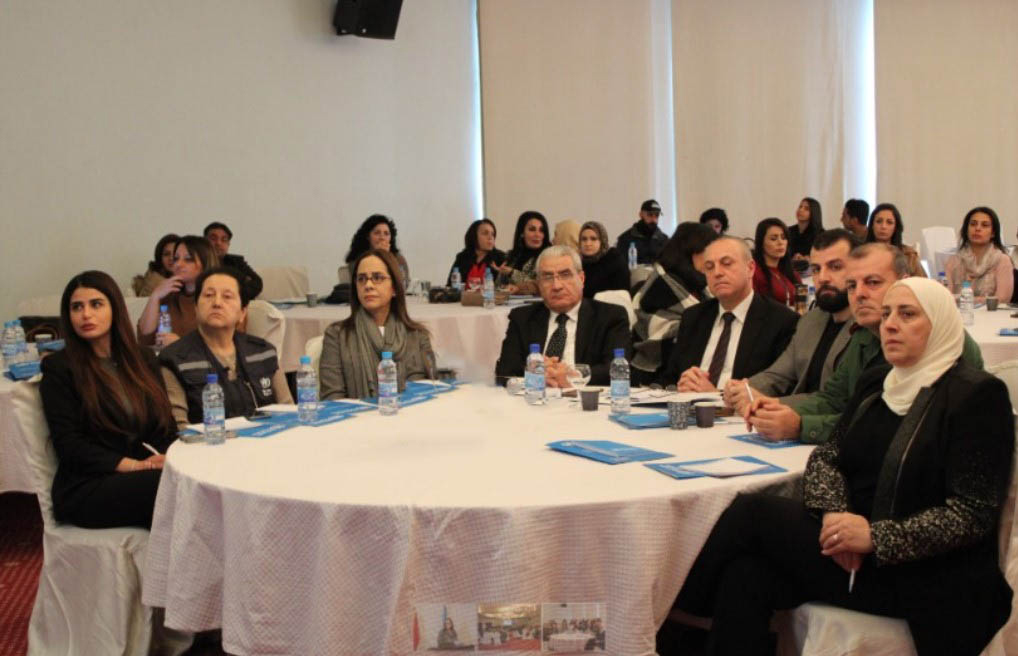 14 February 2024, Damascus, Syria – WHO has concluded the Gender-based Violence and Prevention of Sexual Exploitation and Abuse Victim’s Support in Earthquake-Affected Areas project, which it delivered with the Syrian Ministry of Health and the Syrian Commission for Family Affairs and Population. The project was launched in February 2023, following the devastating earthquake, to tackle gender-based violence (GBV) and prevention of sexual exploitation and abuse (PSEA) in the affected governorates of Aleppo, Hama and Latakia.
14 February 2024, Damascus, Syria – WHO has concluded the Gender-based Violence and Prevention of Sexual Exploitation and Abuse Victim’s Support in Earthquake-Affected Areas project, which it delivered with the Syrian Ministry of Health and the Syrian Commission for Family Affairs and Population. The project was launched in February 2023, following the devastating earthquake, to tackle gender-based violence (GBV) and prevention of sexual exploitation and abuse (PSEA) in the affected governorates of Aleppo, Hama and Latakia.
Throughout the project period, WHO collaborated with the Ministry to ensure the safety, rights, dignity and well-being of survivors of GBV and sexual exploitation and abuse. A clear referral pathway was established, ensuring prompt identification and support for over 50 reported cases of GBV and sexual harassment. Assistance was readily available in shelters and community centres, where many incidents were reported as having taken place amid crowded living conditions.
To complement these efforts, a WHO-supported team of experts, volunteers and local organization members ran more than 500 awareness sessions in the community. These aimed to educate residents about GBV and PSEA, available services and how to seek support. This two-pronged approach addressed both the immediate needs of survivors and long-term community understanding.
“Every step we take towards preventing gender-based violence is a stride towards healing, dignity, and a brighter future for all,” emphasized Dr Iman Shankiti, acting WHO Representative in Syria. “By working together, we are not only addressing a crisis, but also laying the foundation for a society that values and ensures the rights and safety of every individual.”
Thanks to the generous support of Kuwait, the project reached 100 locations across the 3 governorates, empowering numerous people with the knowledge and tools to address GBV and PSEA. WHO remains committed to fighting GBV and expanding these critical services across Syria to pave the way for a safer and more just future, where individual rights and dignity are respected and prioritized.








